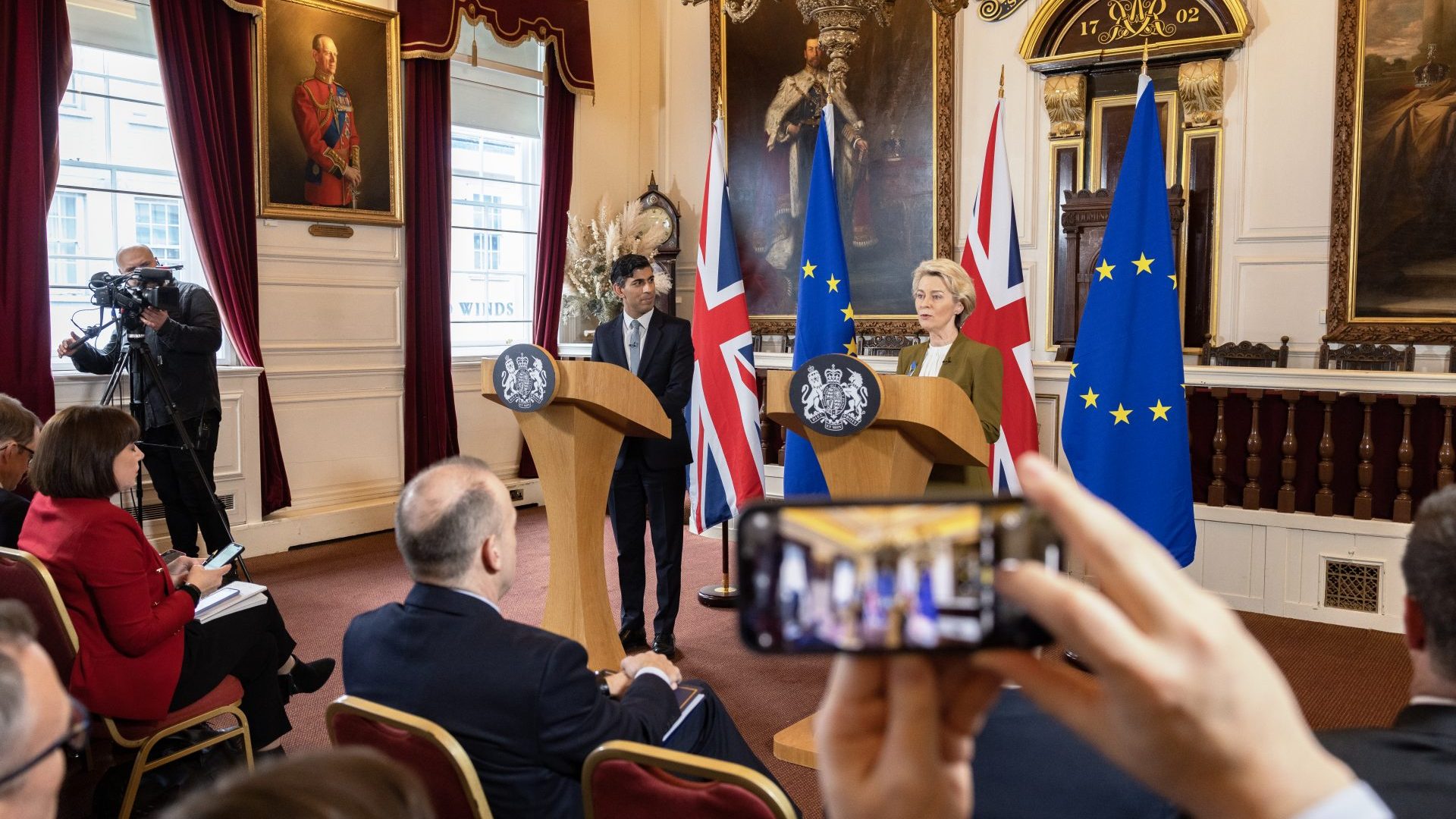The UK in a Changing Europe (UKICE) has released another of its timely bits of research into the state of relations between the UK and the EU. It finds that Rishi Sunak’s government has, since the Windsor Framework, bowed to the inevitable and tried to improve its relationship with the EU. But this has been mainly a matter of backing down and aligning more closely with what Brussels wants, and certainly not the other way round.
There have been new deals on UK involvement in big EU projects including Horizon, the research project, and Copernicus, part of the European space programme. But that has just really meant the UK paying up, in order to join in with what was on offer in the first place. That’s something you might think it should have done immediately.
As for creating a new UKCA mark to designate goods approved for sale in the UK, and abandoning the European CE mark, that has now been abandoned altogether. The CE mark will be in use in the UK permanently now. As for introducing new checks on food and agricultural produce entering the UK, that has been kicked into the long grass yet again, the fifth such delay.
Both are significant reversals by the British government, and both were done, it claims, at the behest of British industry. Both leave EU firms with significant advantages over British based ones.
Finally, UK representations to the EU have been reduced, as we all knew they would be, to those led by officials in technical committees. According to UK In a Changing Europe, these technocratic meetings are “not designed to facilitate greater coordination on areas of strategic sensitivity which require political input”.
Basically, what cooperation there is, is limited to a “sectoral level and with less high-profile political involvement”. As Anand Menon, Director of UKICE says: “There is only so much that can be achieved by officials. Any significant shifts in UK-EU relations will depend on meaningful engagement by political leaders”.
Since Brexit is rapidly sliding down the EU’s list of priorities, the results are fairly obvious and worrying. To get much more out of the relationship, not only does the UK have to start negotiating at a political level, but it also has to convince the EU to do the same when it has little incentive to bother at all.
Meanwhile the UK has applied to “re-couple” its electricity trading system with the EU, something that the UK-EU agreement allows for, and which has the potential to bring down wholesale prices across Britain. However, the EU has to approve the arrangement and the UK is proposing to do it without dynamically aligning its system with the EU’s. There are doubts about whether that will work.
It all means the UK needs the approval of the EU, once again, and the EU can afford to say no. So much for “they need us more than we need them”.
Instead, the UK finds itself in the position the experts warned about. It is happy to get the scraps from the groaning EU table – a table at which it used to sit.
You can read more from Jonty in Jonty’s Jottings on Substack










